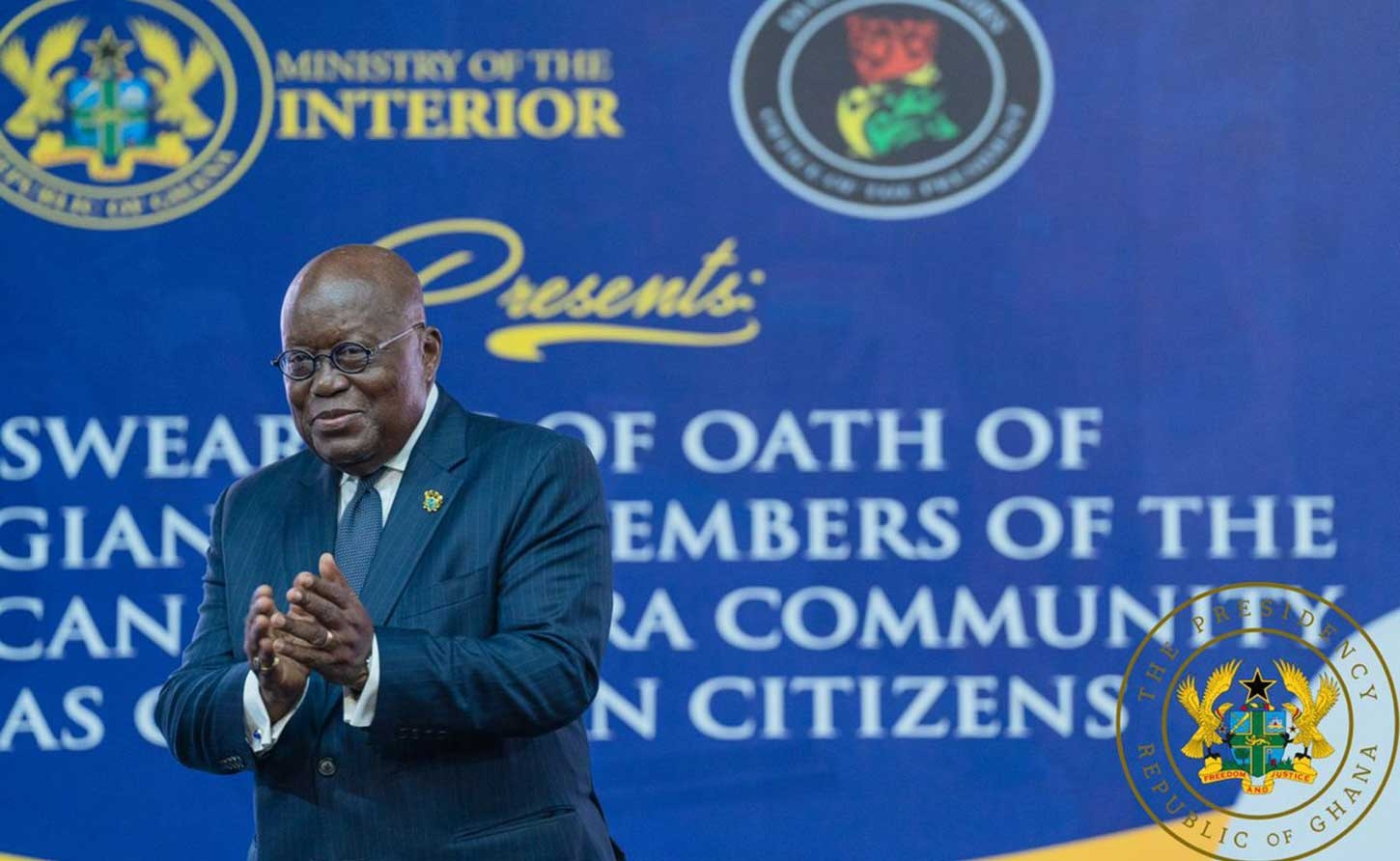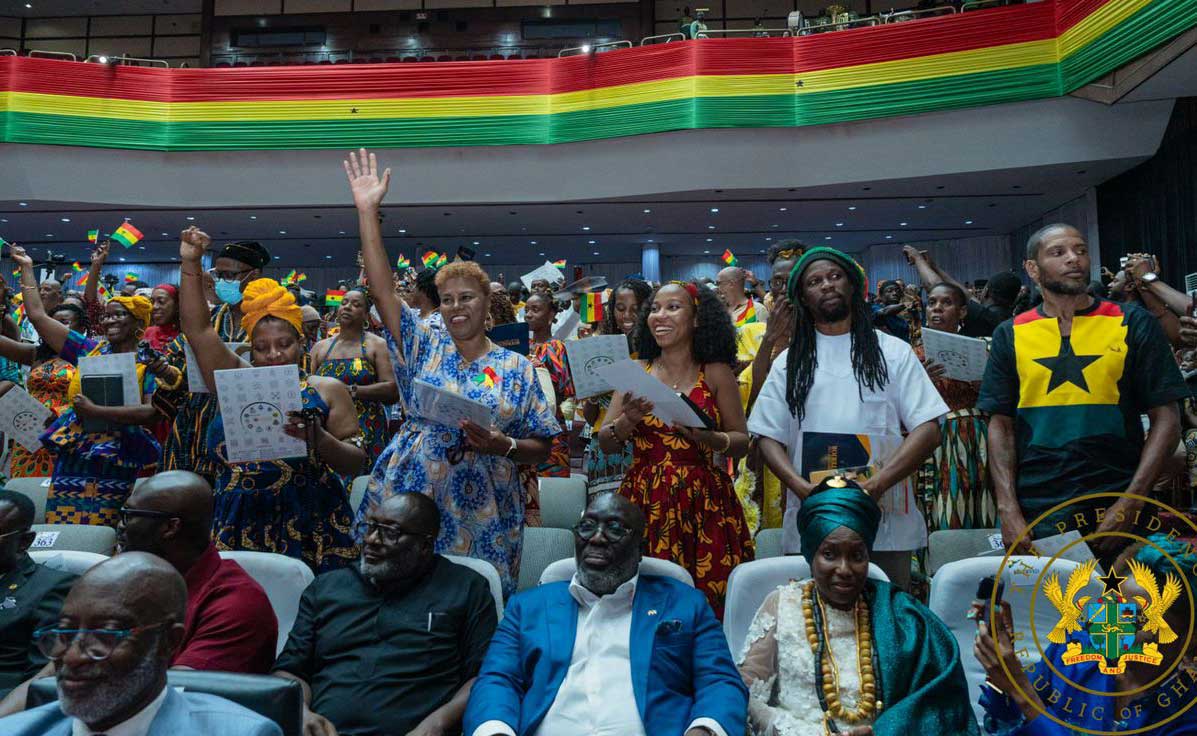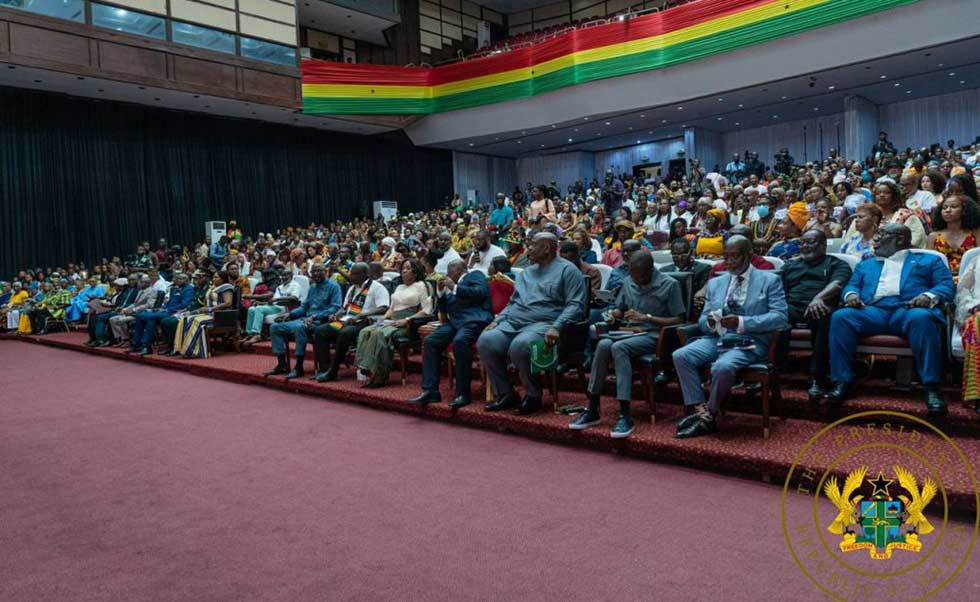GHANA | 524 Diaspora Members Gain Ghanaian Citizenship In Historic Ceremony

ACCRA, Ghana, November 20, 2024 - In a landmark ceremony that resonates with the deep currents of pan-African unity, Ghana has written a powerful new chapter in diaspora reconnection. On Tuesday, November 19, 524 people of African descent from across the Americas, Europe, and the Caribbean were transformed from visitors to citizens in a historic naturalization event that will be remembered for generations.
The ceremony, held at the Accra International Conference Centre, was more than a legal formality—it was a profound healing ritual. Dressed in traditional African attire, the new citizens took their oath of allegiance before High Court Justice Ellen Ofei Ayeh, surrounded by government ministers, diaspora affairs officials, and a sea of well-wishers whose collective emotions seemed to vibrate with historical significance.
This momentous occasion represents the culmination of Ghana's "Year of Return" initiative, which began in 2019 to commemorate the 400th anniversary of the first enslaved Africans arriving in the United States. What started as a remembrance has evolved into a continuous movement of reconnection and restoration.

The historical context of this moment stretches back to 1441, when Portuguese explorers Nuno Tristão and António Gonçalves initiated the Trans-Atlantic Slave Trade—a horrific chapter that would reshape human history. The construction of Elmina Castle in 1482 at Cape Coast marked the first European slave-trading post in Sub-Saharan Africa, a stark reminder of the trauma that preceded this redemptive moment.
"We want everyone to know that what began in the Year of Return is very much alive," said Akwasi Awua Ababio, Director of Diaspora Affairs. His words underscored a critical point: this was not a one-time event, but a continuing journey of reconnection and restoration.
President Nana Addo Danquah Akufo-Addo, who originally launched the initiative before the U.S. Congressional Black Caucus in September 2018, embraced the new citizens with profound historical recognition. "Your ancestors left these shores in circumstances that were tragic and inhumane," he proclaimed. "Today, we embrace you as our own—as fellow citizens of this nation and as part of the Ghanaian family."
The President's address transcended mere political rhetoric, positioning citizenship as a profound cultural embrace. "Being Ghanaian goes beyond holding a passport," he emphasized. "It is about embodying values such as respect, equity, and peace—principles that define us as a people."
Drawing inspiration from Jamaica pan-African icons Marcus Garvey and Peter Tosh, Akufo-Addo reaffirmed a powerful message: "Africa is your home, and Ghana welcomes you with open arms. This is more than a ceremony; it is a reaffirmation of our collective identity and destiny."

This homecoming carries significant economic and intellectual potential. The new citizens represent a reservoir of global expertise, bringing skills from education, healthcare, technology, and the arts. As the President noted, they are "human bridges connecting us across the Atlantic," capable of reshaping global perceptions of Africa.
The legal groundwork for this reunion was laid by the 2001 Right of Abode law, which grants indefinite residency to people of African ancestry from the Americas. The current administration has further smoothed the path by waiving visa requirements and reducing visa-on-arrival costs.
This initiative is deeply rooted in Ghana's historical commitment to pan-African unity. In December 2016, former president John Mahama granted citizenship to 34 diasporans, continuing a tradition that traces back to the nation's founding in 1957, when President Kwame Nkrumah championed a vision of solidarity beyond continental borders.
The numbers tell a compelling story of reconnection: over 100 diasporans received citizenship after the 2019 Year of Return, with 126 more sworn in during a 2022 ceremony. Ghana has strategically positioned itself as a beacon for the African diaspora, recognizing its unique historical significance as the location of 75% of Africa's slave trade dungeons.
Significantly, the nation has become a cultural magnet for African American celebrities and black college alumni. Events like Afro Nation and Afrochella have transformed Ghana into more than a destination—they've made it a symbol of cultural renaissance and healing.
As the citizenship certificates were handed out, each document represented more than a legal status. They were passports to a new identity, bridges across historical trauma, and invitations to a shared future. In the words of President Akufo-Addo, this was "more than a ceremony"—it was a homecoming centuries in the making.
-30-
